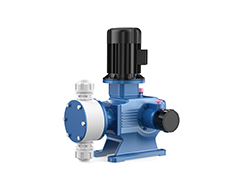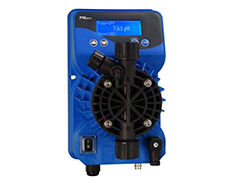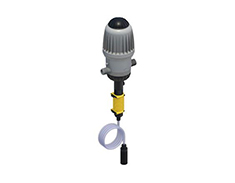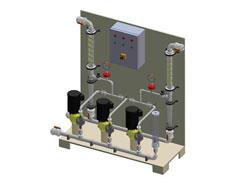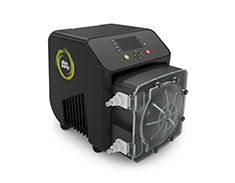- sisdoz@sisdoz.com.tr
- TR
Dosing Pumps and Dosing Systems
What is a Dosing Pump and Why is it Important?
Are you looking for ways to increase the accuracy of a chemical dosing system? A Dosing Pump may be just the solution you are looking for. In water treatment, pharmaceutical industry or any sector where liquids need to be added in precise amounts, a dosing pump provides accuracy and efficiency. In this article, we will examine the importance of a Dosing Pump, its working principle, its benefits and its wide range of applications. At the end of the article, you will understand why it is an indispensable equipment in modern industries.
What is a Dosing Pump?
A Dosing Pump is a mechanical device that allows a chemical or liquid substance to be added to another fluid at a certain rate and accurately. It is mostly used in many sectors such as water treatment, food production, chemical industry. A dosing pump increases efficiency and quality by precisely controlling the amount of liquids in work processes.
How Does a Dosing Pump Work?
Understanding the working principle of a dosing pump is important to fully grasp the benefits of this device. A dosing pump sucks in fluid by moving a diaphragm or piston back and forth and then discharges it into the system in the desired amount. This movement is usually controlled by an electric motor and can be done with manual or automatic settings to reach the correct flow rate settings. A chemical substance, nutrient solution or other liquid is added in the correct amount by means of the pump.
Types of Dosing Pumps
Dosing pumps are manufactured in various types to meet different needs. The most commonly used dosing pump types are:
Diaphragm Pumps: Generally suitable for dosing aggressive liquids and resistant to changing pressures.
Piston Pumps: Preferred in applications requiring high pressure and ideal for high viscosity liquids.
Peristaltic Pumps: Frequently used in laboratory environments, they provide high precision and easy cleaning.
Non-Electric Pumps: Used depending on the flow of water in places where there is no energy and are suitable for continuous dosing needs.
Dosing Pump Usage Areas in Different Industries
Dosing pumps play an important role in many sectors. Here are the main areas of use in some sectors:
Water Treatment: Used to dose chlorine or other chemicals to purify and disinfect water.
Pharmaceutical Industry: Used to add the right amount of chemicals to pharmaceutical formulations.
Food and Beverage Production: Provides the right amount of additives and preservatives in food production.
Chemical Processes: Used to add chemicals to production processes at the right dose.
Benefits of Using a Dosing Pump
The most important reason to use a dosing pump is that it provides precision. Many industrial processes require not only adding liquids, but also adding the right amount. A dosing pump makes business processes more efficient and effective, while providing the following benefits:
Accuracy: A dosing pump ensures that liquids are added in the right amount, which is critical for quality control.
Cost Efficiency: Using the right amount of chemicals or liquids reduces waste and optimizes operational costs.
Automation: Dosing pumps minimize human error by reducing manual intervention and automate processes.
Versatility: Adaptable to various industrial processes, making it indispensable in every sector.
Things to Consider When Choosing a Dosing Pump
When choosing a dosing pump, factors such as the properties of the fluid, the required flow rate, and the need for pressure should be taken into consideration. In addition, the automation level of the pump used is also important. If you are using an automatic system, motorized and actuated pumps can be preferred. If small quantities need to be controlled precisely, peristaltic or solenoid pumps may be more suitable. In addition, working with reliable suppliers and experts who will meet your sector-specific requirements will help you choose the right pump.
Dosing Pump Maintenance and Use
Regular maintenance is required for dosing pumps to operate efficiently. Here are some maintenance recommendations:
Regularly check and replace sealing elements.
Check the wear of the motor and diaphragm.
Calibrate the dosing pump to ensure its accuracy.
Keep the pump clean and reduce the risk of clogging or contamination.
Regular maintenance extends the life of the dosing pump and maintains its accuracy.
Discover the Power of Accuracy with a Dosing Pump
As a result, a Dosing Pump plays a critical role in many industries by ensuring that chemicals are added to any process in the right amount and at the right time. In many areas such as water treatment, chemical industry or food production, this pump provides accuracy, efficiency and cost savings. With the right pump selection and regular maintenance, you can make your business processes more efficient and increase your operational quality.

